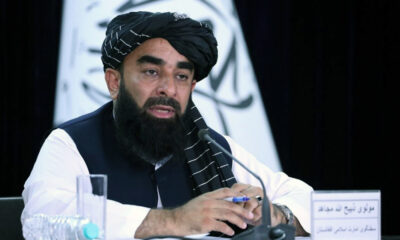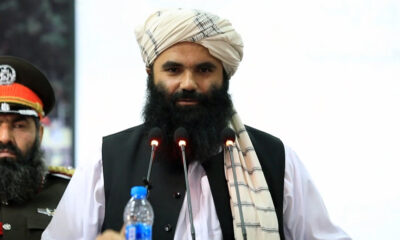Latest News
Taliban pose severe threat to govt and still close to al-Qaeda: UN report

An emboldened Taliban poses a severe and expanding threat to the government of Afghanistan, remains close to al-Qaeda, and believes it can return to power by force if necessary, according to a United Nations Security Council report released on Wednesday.
The report compiled by the UN Monitoring Team, which is tasked with tracking security threats in Afghanistan, paints a bleak picture of the security outlook, CNN reported.
The UNSC report comes half way through the US and foreign troops withdrawal from Afghanistan – a retrograde expected to be finished by September 11.
According to the agreement, signed last year between the US and the Taliban, the insurgent group pledged to cut ties with terrorist groups including al-Qaeda.
But the UN Monitoring Team says the Taliban remains “closely aligned” with al-Qaeda — which has threatened “war on all fronts” against the US.
The two groups “show no indication of breaking ties,” even if they have temporarily tried to mask their connections, according to the report, although it notes that the Taliban calls this “false information.”
According to the UN report, 2020 was the “most violent year ever recorded by the United Nations in Afghanistan.”
Security incidents have risen over 60% in the first three months of 2021 compared to the same period in 2020.
The UN team says that the Taliban is “reported to be responsible for the great majority of targeted assassinations that have become a feature of the violence in Afghanistan and that appear to be undertaken with the objective of weakening the capacity of the government and intimidating civil society.”
The report also indicates that part of the Taliban leadership has no interest in the peace process, saying that “both deputy leaders of the Taliban, Mullah Mohammad Yaqub Omari and Sirajuddin Haqqani are reported by Member States to oppose peace talks and favour a military solution.”
Haqqani is the commander of the Haqqani network, a powerful semi-autonomous force within the Taliban structure. According to the UN, Mullah Yaqub, son of the late Taliban founder Mullah Omar, was appointed as head of the Taliban’s Military Commission in May 2020.
The UN Monitors assess that the “security situation in Afghanistan remains as tense and challenging as at any time in recent history,” with member states reporting that the “Taliban have been emboldened to sustain attacks for longer periods while also exercising greater freedom of movement. This has allowed the Taliban to mass forces around key provincial capitals and district centres, enabling them to remain poised to launch attacks,” CNN reported.
The UN monitors added that many believe the Taliban are “seeking to shape future military operations when levels of departing foreign troops are no longer able to effectively respond.”
According to the UN report, member states assess that the Taliban “contest or control an estimated 50 to 70 percent of Afghan territory outside of urban centers, while also exerting direct control over 57 percent of district administrative centers.”
Asfandyar Mir, South Asia security analyst at Stanford University, says the Taliban appears ready to go on the offensive against the Afghan government. “Taliban is starting to put major pressure in provinces adjacent to Kabul — including, worryingly, in neighboring Laghman, which saw substantial Afghan security forces defections to the Taliban,” Mir told CNN.
“In the south of the country, the Taliban is poised to put more pressure on provincial capitals.”
The report assesses that, despite twenty years of warfare, Taliban numbers remain “robust” and “recruitment has remained steady” — with estimates of the insurgent group’s fighting strength ranging from 58,000 to 100,000, CNN reported.
Latest News
Omari and Iranian ambassador meet to strengthen Afghan migrant labor ties
Latest News
Pakistan’s actions target militants, not religious sites: Khawaja Asif
He rejected claims equating these operations with India’s alleged strikes on mosques and religious seminaries in Bahawalpur and Muridke, stressing that Pakistan does not target religious or civilian sites.
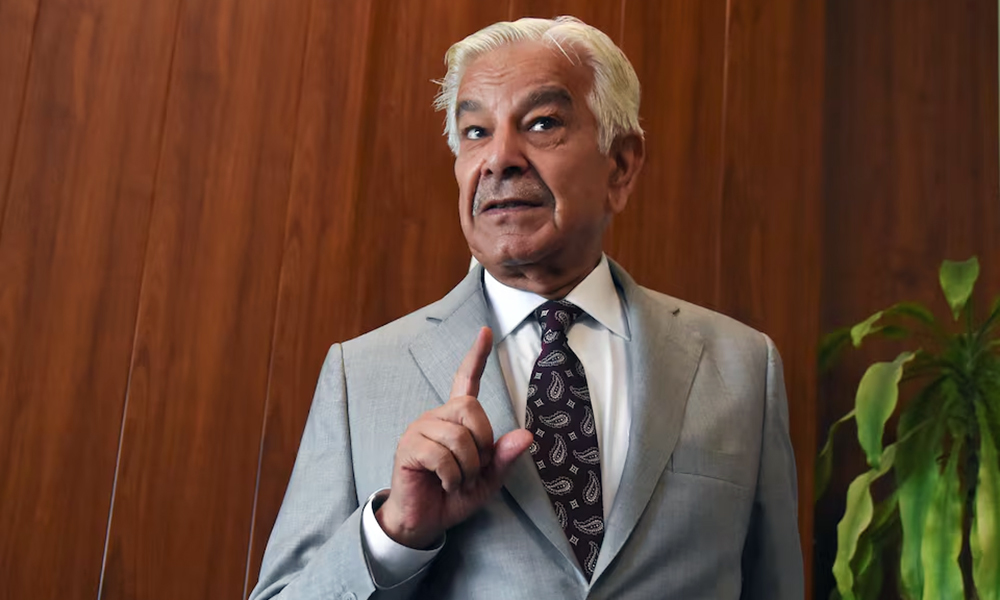
Pakistan’s Defence Minister Khawaja Muhammad Asif has dismissed comparisons between Pakistan’s counterterrorism operations along the disputed Durand Line and what he described as India’s attacks on religious sites, saying such parallels are “entirely wrong and inappropriate.”
In a statement issued Tuesday, Asif said Pakistan’s military actions are strictly aimed at verified camps belonging to Tehreek-e-Taliban Pakistan (TTP) militants operating from Afghanistan. He rejected claims equating these operations with India’s alleged strikes on mosques and religious seminaries in Bahawalpur and Muridke, stressing that Pakistan does not target religious or civilian sites.
The defence minister said the international community, including the United Nations, has repeatedly expressed concern over the threat of terrorism they claim is originating from Afghanistan. He said these concerns are reinforced by continued militant infiltration and attacks inside Pakistan, which, according to him, are carried out by armed groups entering from Afghan territory.
Referring to India’s allegations surrounding the Pahalgam incident, Asif said New Delhi has failed to present credible or verifiable evidence to support its claims. He added that Pakistan had offered to cooperate with an independent and impartial investigation, an offer that India declined.
Asif further said a recent United Nations report had described India’s actions as illegal and based on unsubstantiated claims, while affirming that Pakistan’s response was justified under international law. He said Pakistan has already addressed and clarified allegations regarding India, what he termed proxy extremist elements, and their alleged supporters.
Reiterating Pakistan’s stance, the defence minister said the country remains vigilant and determined to protect its sovereignty and national security. He emphasized that Pakistan will continue its counterterrorism efforts and will challenge what he described as baseless accusations and hostile narratives at all international forums.
Meanwhile, the Islamic Emirate of Afghanistan (IEA) has consistently rejected Pakistan’s accusations, maintaining that Afghanistan does not allow any group to operate from its soil. Afghan authorities have repeatedly stated that Pakistan’s security challenges are an internal matter and should be addressed domestically.
Latest News
Germany conducts first deportation to Syria in a decade
The deportation marks a historic shift in German migration policy and signals the government’s determination to enforce stricter measures against convicted foreign nationals.
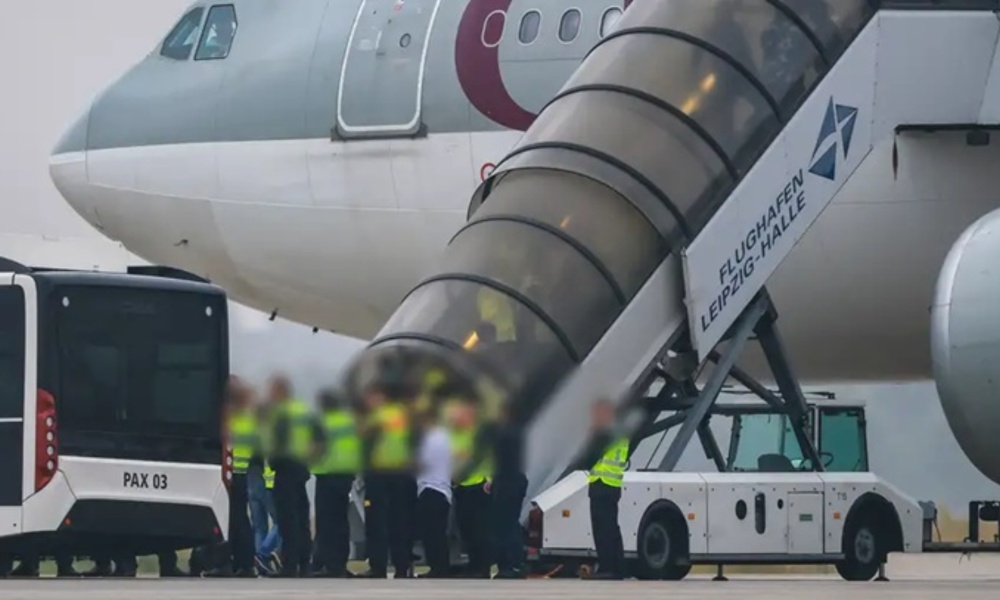
Germany has carried out its first deportation to Syria since the outbreak of the country’s civil war in 2011, sending a convicted Syrian national back to Damascus on a scheduled commercial flight.
The 37-year-old man, who had served a prison sentence in North Rhine-Westphalia for aggravated robbery, bodily harm, and extortion, was escorted by federal police to the Syrian capital, where he was handed over to local authorities on Tuesday, December 23.
The Federal Interior Ministry confirmed the deportation, which coincided with another removal of an individual to Afghanistan. The ministry said it had reached agreements with both Damascus and Kabul authorities to facilitate “regular” deportations of serious offenders and individuals considered security risks in the future.
The Afghan national had been imprisoned in Bavaria, including for intentional bodily harm. The ministry said this marked the second deportation of an Afghan criminal within a week.
“Criminals must leave our country. We stand for control, consequence, and zero tolerance towards offenders and threats,” said Interior Minister Alexander Dobrindt (CSU), emphasizing that the move reflects Germany’s commitment to law and order.
Dobrindt further justified the policy by highlighting the strain on local municipalities, which have faced challenges accommodating foreign nationals serving prison sentences. “We have reached the breaking point for a long time, and the overload in the municipalities is visible,” he said.
The deportation follows months of diplomatic negotiations after the fall of Bashar al-Assad’s regime in December 2024, which ended a 14-year civil war. The change prompted Germany to reassess its long-standing ban on returns to Syria.
The current coalition government, formed by CDU/CSU and SPD, explicitly committed in its agreement to resume deportations to Syria and Afghanistan, targeting criminals and “Gefährder” — individuals considered potential security threats. Chancellor Friedrich Merz has been a vocal supporter of the policy, meeting with Syria’s transitional president Ahmed al-Sharaa to discuss mechanisms for further returns.
The move carries symbolic weight amid heightened public concern over migration, with roughly one million Syrians currently residing in Germany, many of whom arrived during the 2015-2016 refugee influx under former Chancellor Angela Merkel.
While the German government asserts that the Syrian conflict is over, human rights organizations continue to caution against deportations, citing lingering instability, ongoing reconstruction challenges, and potential security risks for returnees.
The deportation marks a historic shift in German migration policy and signals the government’s determination to enforce stricter measures against convicted foreign nationals.
-

 Latest News1 day ago
Latest News1 day agoAfghanistan exports 10 containers of batteries to Saudi Arabia and UAE for first time
-

 Latest News3 days ago
Latest News3 days agoAfghanistan signs 30-year deal for marble mining in Daikundi
-

 Latest News1 day ago
Latest News1 day agoPakistani cleric condemns lifetime immunity for Army Chief as un-Islamic
-

 Latest News5 days ago
Latest News5 days agoPakistan summons Afghan diplomat over deadly attack in North Waziristan
-

 Latest News4 days ago
Latest News4 days agoAfghan health minister calls for medical cooperation between Kabul and New Delhi
-

 Latest News4 days ago
Latest News4 days agoKarzai urges reopening of girls’ schools and universities for Afghanistan’s bright future
-
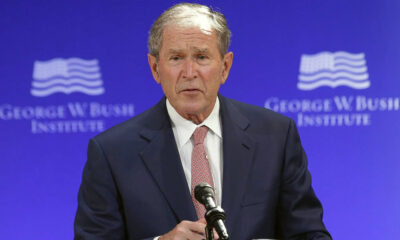
 Latest News3 days ago
Latest News3 days agoBush Institute criticizes Trump administration’s Afghan immigration freeze
-
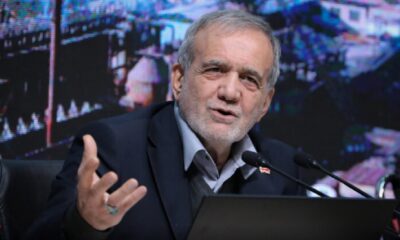
 Business4 days ago
Business4 days agoPezeshkian pledges to facilitate Iran-Afghanistan trade








